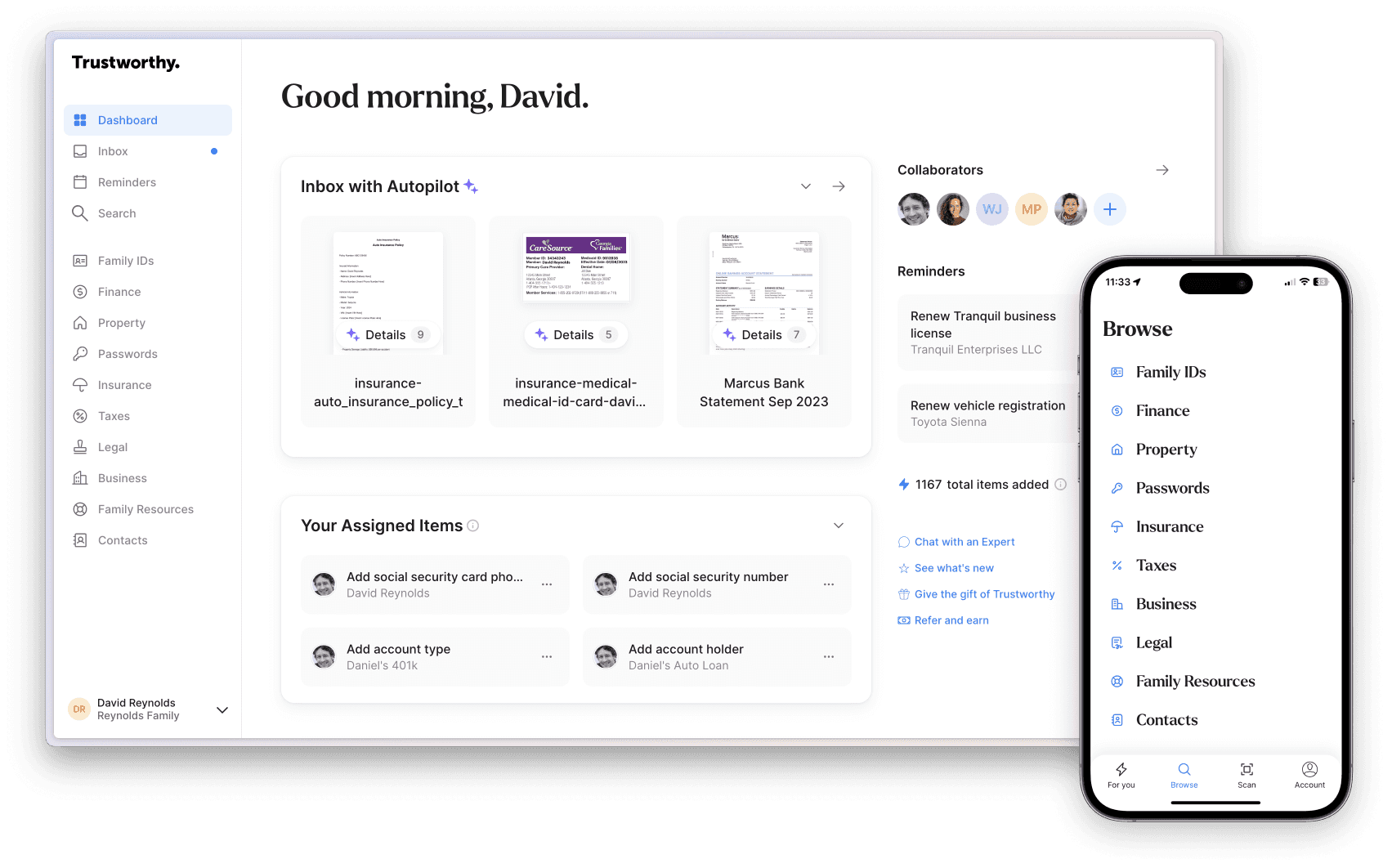Life can change in an instant, and it's essential to be prepared for whatever comes your way. If you're in an accident or face a medical crisis, you don't want your loved ones struggling to guess your wishes.
That's why having a living will is so important – it provides clear guidance when it's needed most.
A living will is a type of advance directive that details the medical treatments you do (or don’t) want to receive if you cannot speak for yourself. Despite how fundamental it is to communicate your wishes, less than half of U.S. adults polled in 2020 had a living will.
To help you get started working on your living will, we sat down for a Q&A session with attorney Eric Grogan. He's the founder of Grogan Law and covers a number of counties around Austin, Texas.
Grogan specializes in helping clients create customized estate plans, including living wills, powers of attorney, and HIPAA release forms, as well as resolving probate issues.
Read on to get his take on why living wills are important, the legal requirements you’ll need to fulfill to ensure your living will is valid, and how to talk to family and friends about your wishes. Plus, get top tips on how to store and update your living will.
What Is a Living Will, and Why Is It Important?

Answer: A living will tells doctors and your family what medical care you want if you become too sick to speak for yourself.
It's a crucial document that prevents confusion and family arguments during difficult times by making your wishes clear about medical decisions, financial matters, and asset distribution.
For example, it lets you specify whether you'd want life support, how your bills should be paid, and who can access your accounts if you're incapacitated.
A living will differs from other medical directives because, at the surface level, a medical power of attorney lets you name someone to make healthcare decisions when you can't communicate, while a living will states your specific medical care preferences, like organ donation and life support choices.
An advance healthcare directive is the umbrella document that can include both of these. It’s like a complete package that covers who makes decisions and what those decisions should be.
What Are the Key Elements to Include in a Living Will?
Answer: A living will should clearly specify your wishes for life-sustaining treatments like ventilators and feeding tubes, your preferences for pain management and comfort care, and whether you want to donate organs.
It needs to outline end-of-life care choices and name a healthcare agent who'll make decisions when you can't.
Each section should be specific. For example, not just saying "no extraordinary measures" but detailing exactly which treatments you do or don't want.
What Are the Legal Requirements for a Living Will?
Answer: Legal requirements for a living will vary by state, but most require your signature, the signatures of two witnesses who aren't family members or healthcare providers, and often notarization.
The document must be created while you're mentally competent, and some states require specific forms or language. Without meeting these requirements, the living will may not be legally valid — meaning doctors and hospitals could reject it.
How Do You Start 'the Conversation' with Loved Ones?

Answer: Discussing your living will with loved ones ensures they understand and can support your medical wishes when you can't speak for yourself.
These conversations prevent family conflicts during crisis moments and give your healthcare agent confidence they're making the right decisions, following what you truly wanted rather than having to guess.
Choose a quiet moment, like after dinner, to begin naturally. Say something like, "I recently updated my living will" or "Remember when Uncle Jim got sick, and we weren't sure what he wanted?" Then, share your own thoughts first to open the conversation.
Ask open questions about their wishes and values, listening more than talking to encourage honest dialogue.
What Are Your Top Tips for Storing and Updating a Living Will?
Answer: Keep a signed copy of your living will with your primary doctor, local hospital, and family members.
Store digital copies in a secure online vault or cloud storage that trusted people can access. Always keep the original in a safe place at home, and tell your healthcare agent exactly where to find it.
Review and update your living will every three to five years or after major life changes like marriage, divorce, or significant health issues. Also, update it if you move to a different state, since legal requirements vary.
Related video: Who Needs Copies of Your Medical Power of Attorney Form
What Are Common Mistakes to Avoid When Creating a Living Will?
Answer: Three major mistakes to avoid: using vague terms like "extraordinary measures" instead of naming specific treatments, not sharing your living will with doctors who need to know your wishes, and thinking verbal instructions are enough.
Your wishes must be clearly written, legally documented, and shared with the right people to ensure they're followed.
Are There Any Alternatives to Using a Living Will?
Answer: Instead of a living will alone, you could use an advance healthcare directive that combines both your specific medical wishes and names someone to make decisions.
A medical power of attorney is another option that focuses solely on appointing a trusted person to make your healthcare choices. Both alternatives offer more flexibility than a living will.
Combining a living will with a medical power of attorney and advance directive provides complete protection for your healthcare wishes. Adding a durable power of attorney for finances ensures both medical and money matters are covered if you become incapacitated.
Should You Use Online Tools or Professional Services to Create a Living Will?
Answer: While online tools offer a quick, affordable way to create a living will, they may miss state-specific requirements or personal nuances.
A legal professional can ensure your document meets all requirements, addresses your unique situation, and coordinates with other estate planning documents. The higher cost is worth it for complex situations or significant assets.
Consult a lawyer for your living will if you have a complex medical history, significant assets, unusual family dynamics, or specific religious/cultural requirements that affect medical care.
Also, seek legal help if you're unsure about state laws or need to coordinate multiple estate planning documents.
––––––––––––––––––––––––––––––
Update and Share Your Living Will Using Trustworthy

After setting up a living will, you must consider how it can be maintained, updated, and shared with friends, family, and trusted professionals.
That’s where Trustworthy can lend a hand.
Trustworthy’s Family Operating System® enables you to upload and create digital versions of all your important family documents. Useful templates and Trustworthy’s AI-powered Autopilot tool get you started organizing those documents into relevant folders, streamlining the onboarding process to set you up with an organized digital estate plan.
From there, Trustworthy enables you to grant granular access to each of your estate documents. That means you can give secure access to trusted professionals like your attorney or doctor. You can also share your living will with family and close friends to ensure everybody has the same information.
The access you grant can be time-limited and revoked at any time, and everything you store and share on Trustworthy uses bank-level AES 256-bit encryption and tokenization to ensure it is secure at all times.
To ensure your living will is always up to date, you can set up regular reminders throughout the year to review and revise your plan.
Ready to try it for yourself? Get started with Trustworthy – for free – to start organizing your estate plan and ensure you’re ready for whatever life tosses your way.
We’d love to hear from you! Feel free to email us with any questions, comments, or suggestions for future article topics.
Trustworthy is an online service providing legal forms and information. We are not a law firm and do not provide legal advice.














